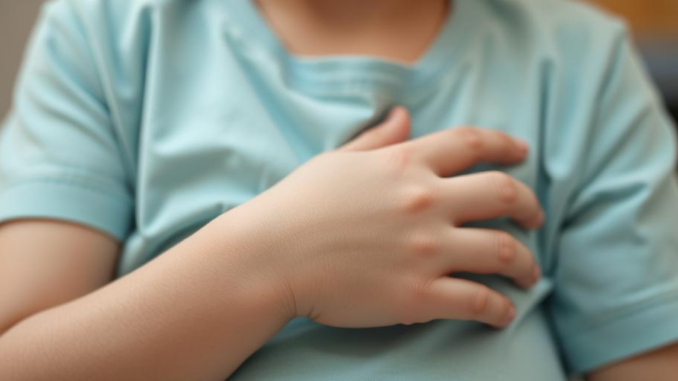
Summary
Miniature pacemakers, specially adapted for premature babies, offer a lifeline for infants with life-threatening heart defects. This innovative technology allows for less invasive surgery and faster recovery times, giving hope to families facing difficult decisions. These advancements highlight the continuous evolution of pediatric care and its commitment to providing the best possible outcomes for even the smallest patients.
Secure patient data with ease. See how TrueNAS offers self-healing data protection.
** Main Story**
Okay, so you know how the medical field is always coming up with something new? Well, pediatric care is right there leading the charge, and honestly, some of the stuff they’re doing is just mind-blowing. I’m talking about these miniature pacemakers. They’re giving a real shot at life to premature babies who are born with serious heart problems. I mean, we’re talking tiny, like smaller than a AAA battery – it’s crazy! They’re solving a huge problem because the regular pacemakers are way too big for these little ones.
The Hurdle: When Baby Hearts Don’t Beat Right
So, there’s this thing called congenital complete heart block, or CCAVB. It’s rare, hitting about 1 in every 22,000 babies. Basically, the electrical signals that keep the heartbeat steady just get all messed up. This causes a super slow heart rate, which is obviously not good. Now, normally, a pacemaker would fix this. But here’s the catch: traditional pacemakers are often too big for preemies. Can you imagine? These babies might only weigh a few pounds. It’s like trying to fit an adult shoe on a newborn. It’s just not going to work. This size issue meant babies had to wait to grow bigger before they could even get a pacemaker. That meant long hospital stays and all sorts of other interventions.
Medical Magic: Shrinking Tech for Little Hearts
Honestly, figuring out how to make these tiny pacemakers is a real testament to medical engineering. You see, they started with the Medtronic Micra, which is already a leadless pacemaker about the size of a big vitamin. Smart move. To make it work, doctors added leads to the Micra. So now you have something that works like a normal pacemaker but is way, way smaller. It’s kind of genius, if you ask me. This wasn’t easy, though. It took some serious brainstorming between the medical device companies and the pediatric specialists, and they even needed to get special emergency FDA approval for humanitarian use in some cases. I mean, you can’t just go sticking new devices in babies without the right checks, can you?
Game Changer: Faster Healing, Less Ouch
The cool thing is, these miniature pacemakers help in a bunch of ways. For starters, they’re so small that the surgery is less invasive. Less risk, you know? And because the cut is smaller, the babies recover faster. That means they can get back to gaining strength and dealing with their other health issues. Seriously, it’s like giving them a head start. Plus, for babies who struggle with breathing or feeding, the lighter weight of the device makes a massive difference. It’s one less thing weighing them down, literally. I remember reading about one baby who started feeding better within days of getting the new pacemaker, it was like a switch had been flipped.
Looking Ahead: More Hope, More Help
These tiny pacemakers? They’re like a ray of light for families going through some tough times. Since they first put one in a premature baby, it’s been done on lots of other kids across the country. There’s Heavenleigh Weilage, Mikey Oliveri, Cameron Knowles, Abby Kim – their stories are proof that this tech can save lives. And it shows how dedicated these pediatric healthcare pros are to pushing the limits. As they keep doing more research and development, I think we’ll see these tiny pacemakers become more common and even better than before. It’s a brighter outlook for all these little ones born with heart problems. It really makes you think, doesn’t it?


Smaller than a AAA battery? Suddenly my kid’s refusal to share the remote seems a lot less dire. Seriously though, amazing how far medical tech has come. Maybe next they’ll invent a miniature coffee maker that intravenously delivers caffeine directly to sleep-deprived parents!
Ha! I love the image of the intravenous coffee maker! It really is incredible what they’re achieving in medical tech. I wonder what other everyday problems can be solved through miniaturization. Perhaps tiny personal air conditioners are next on the list!
Editor: MedTechNews.Uk
Thank you to our Sponsor Esdebe